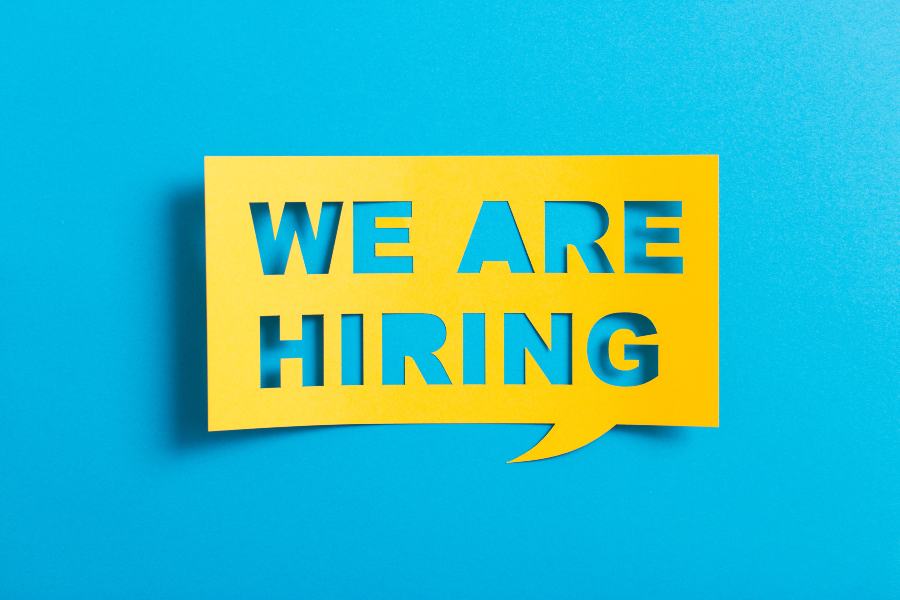Behavioral Interview Topics & Questions [+ Free Template]
![behavioral-interview-topics-&-questions-[+-free-template]](https://zabollah.com/wp-content/uploads/2024/05/16707-behavioral-interview-topics-questions-free-template.jpg)
A behavioral interview is a conversation between a job candidate and an employer that focuses on past job-specific situations. Asking questions about previous behavior can help illuminate a candidate’s skills and predict how they might perform in your open role. This article provides free sample behavioral interview questions and answers by topic, guiding you on what to look for in an applicant’s answers.
To help keep track of your applicants’ responses, download our free behavioral interview template.
Our behavioral interview template, as well as the sample questions below follow the STAR method of interviewing. It’s the recommended framework to optimize behavioral interviews. Learn more about it in our what is the STAR method of interviewing guide.
1. Teamwork
Teamwork questions are asked to gauge how well the applicant works with others and will fit into the existing team and company culture. Depending on the role, the importance of teamwork in a specific job can vary.
Poor answers show that the applicant does not try to work with others or resolve conflict diplomatically. Good answers show that the applicant has experience working in a group setting and would work well with your existing team members, as a leader or a collaborator. They also indicate that the candidate can work through conflict constructively and knows when to escalate issues to management or human resources.
Look out for answers that exhibit a candidate’s willingness to work with a multitude of unique personalities, demonstrated success in working with a group, and a keen understanding of their strengths and weaknesses in a group setting.
Situation: Tell me about a time when your team had to meet a tight deadline.
Task: What tasks were you responsible for to help meet the deadline?
Action: How did you collaborate with your team members to ensure the deadline was met?
Result: Was the deadline met? What role did your actions play in achieving this outcome?
2. Client & Customer-facing Skills
Client or customer-facing skills questions help you understand how the applicant will communicate with individuals who are expecting a service from them. For a salesperson, it would be the company’s client. For an operations staff member, it would be the company’s employees.
You are looking for responses that show the applicant is aware of how their work affects others and the company as a whole. The best answers show that an applicant takes pride in their responses and communication, whereas poor answers indicate a disregard for how work is accomplished or how it’s communicated to clients and customers. Poor answers also reveal that an applicant only looks at how they are personally affected by what happens with a customer or client.
Situation: Share an experience where you successfully managed multiple client/customer requests.
Task: What kind of requests/demands were you handling?
Action: How did you prioritize and organize your tasks to address each request effectively?
Result: What was the outcome?
3. Adaptability
The importance of adaptability questions depends on the variability of your company. If your company is constantly evolving, the applicant’s ability to adapt to change will be vital to their success. It will also show how they handle unpredictable situations and whether they will thrive in a changing environment.
When assessing a candidate’s adaptability, look for answers that show their ability and willingness to step up in a variety of different situations. The best answers will show that they can think on their feet and adjust their plans based on new information.
Poor answers, on the other hand, show they may be reluctant to learn new skills and techniques or voluntarily help others. However, poor answers may also reflect an inability to establish necessary boundaries with co-workers and seek help if their workload is unsustainable.
Situation: Tell me about a time you had to work with someone very different from you.
Task: What was the objective of your collaboration?
Action: What steps did you take to adapt your usual working style to better collaborate with this person?
Result: How did the collaboration go? What were the key takeaways from working with someone different?
4. Time Management
Time management questions allow you to learn how an applicant prioritizes their work. You are looking to see if the applicant has a strategy that works for them and if that strategy can be replicated in this new position. You’re not looking to trip up candidates and give them unrealistic scenarios. Instead, look for strategies that show they know how to prioritize.
Keep an eye on applicants who are strategic about how they spend their time and can avoid distractions. Even better answers will show that they can identify distractions and prioritize tasks due to their understanding of the department or company’s goals. On the other hand, poor answers show that they struggle to meet deadlines and are dependent on their manager to keep them on task.
Situation: Can you share an example of a time when an unexpected task disrupted your schedule? How did you handle it?
Task: What did you need to accomplish despite the disruption?
Action: How did you reassess and rearrange your priorities to manage your time?
Result: What was the outcome? How did this experience affect your approach to time management?
5. Communication
Questions about communication skills are designed to determine how an applicant expresses their ideas, listens actively, and engages with others constructively. Whether they are talking to clients, collaborating with others, or managing conflicts, good communication skills ensure that all parts of the operations are running smoothly.
The best answers show that an applicant is aware of their communication preferences and how their communication is perceived by others and is willing to adapt if necessary. Poor answers reflect an inability or unwillingness to communicate effectively with others.
Situation: Tell me about a time when you had to deliver difficult feedback to a colleague.
Task: What specific message did you need to convey?
Action: How did you prepare for and conduct the conversation?
Result: What was the outcome of this interaction, and what did you learn from it?
6. Motivation & Values
Motivation and values questions seek to give interviewers an understanding of what inspires the applicant to be the best version of themselves. This group of questions is especially important for jobs that have a robust career trajectory within the company.
Look for answers that show the applicant’s motivation and values mirror or complement the company’s mission, vision, and core values. Poor answers show apathy for success and failure questions, which could show a lack of motivation for professional growth. Not every applicant will show strong signs of motivation or growth. Don’t necessarily take this as a bad sign—some people truly love what they do, do it well, and have no desire to move up.
Situation: Describe a situation where you went above and beyond your job requirements.
Task: What were you initially supposed to do?
Action: What specifically did you do that went beyond the requirements?
Result: What was the outcome of your actions, and what did you learn from the experience?
How to Conduct an Effective Behavioral Interview
Once you get to the final list of your candidates, you get to the final interview stage where you dig a little deeper to see which candidate is a good cultural fit. This is where asking behavioral questions comes in to get an honest glimpse into each candidate’s character. Here are some tips on how to conduct it effectively:
1. Use Unstructured Follow-up Questions
Rather than sticking to predictable, structured questions, prepare questions that will allow the candidate to think critically. It will give you a glimpse of their thought process, problem-solving skills, and decision-making abilities.
For example, if the candidate gives you an example of how they handled multiple projects simultaneously, you might follow up with, “Can you walk me through how you prioritize your tasks when managing these multiple projects? How did you decide which tasks need immediate attention and which ones could be deferred?”
2. Ask for Evidence
This will help you uncover patterns of behavior or skills in different situations or contexts. By asking for multiple examples, you can gain a more comprehensive understanding of how consistently the candidate demonstrates a specific skill or behavior. To do this, you can ask the candidate the same question but in different contexts.
For example, instead of just asking, “Tell me about a recent success when working with a group. Why was the group successful?”, you can ask it in different contexts. For example:
- Do you believe there were specific factors that contributed to the group’s success?
- Why do you think the group was able to achieve success in this particular situation?
- How do you attribute the group’s success to certain strategies or dynamics that were at play?
3. Ask About the Lessons They Learned from the Experience
Asking candidates about their learnings encourages them to reflect on the challenges they have faced, the strategies they used, and the outcomes they’ve achieved. It provides an opportunity for candidates to showcase their ability to extract meaningful lessons from both their successes and failures.
Moreover, it also allows you to assess their adaptability and capacity for continuous improvements. Candidates who showed a willingness to learn are ideal in a dynamic work environment.
What a Good Answer Should Look Like
To determine the quality of a candidate’s answer, consider the following:
- Depth and clarity of the response
- Any strategy or thoughtfulness to the response
- Whether the candidate provided clearly relevant examples
- An indication that the candidate understands the importance of the question and response
As such, a great answer should be thoughtful, include detailed examples, and showcase that the candidate has the needed skill. A good answer also showcases the necessary skill but may lack substance or an in-depth example. Lastly, a poor answer doesn’t illustrate the necessary skill or shows a lack of understanding of/lack of interest in the question.
Behavioral Interview Frequently Asked Questions (FAQs)
The purpose of a behavioral interview is to assess a candidate’s suitability for a position based on their past behavior in specific work-related situations. This type of interview is based on the idea that past behavior is the best predictor of future performance in similar circumstances.
To get the most out of it, identify the key competencies and skills needed to be successful in the role. Your questions should lead candidates to share specific past experiences that are relevant to the skills you are looking for. Use open-ended questions that encourage detailed responses, such as “Describe a situation where you had to” or “Tell me about a time when.”
Situational interviews are hypothetical. The interviewer presents a hypothetical situation and the candidate answers what he would do in that situation. Meanwhile, a behavioral interview focuses on the candidate’s past experiences and how they handled those experiences.
Bottom Line
Behavioral interviews can be a very important tool in evaluating an applicant’s future success in a job. Being intentional with what questions you ask and knowing what to look for in the applicant’s answers will go a long way toward ensuring positive hiring outcomes. For more help on sample interview questions, please see our guide on the best interview questions for employers.
Hiring employees starts well before the interview process and extends after. For step-by-step instructions, check out our article on how to hire an employee.





